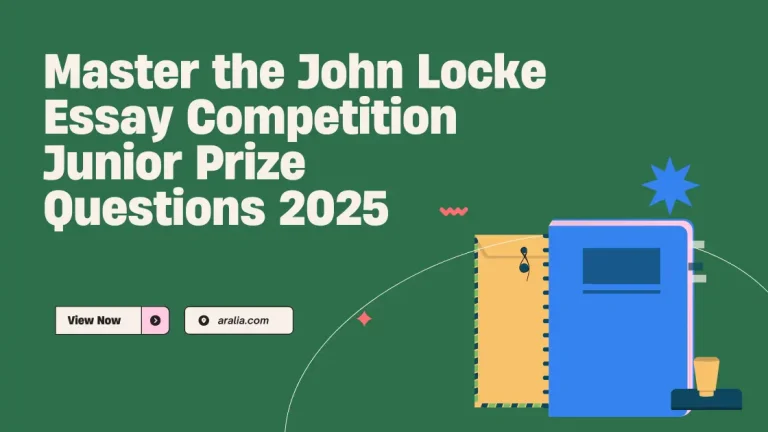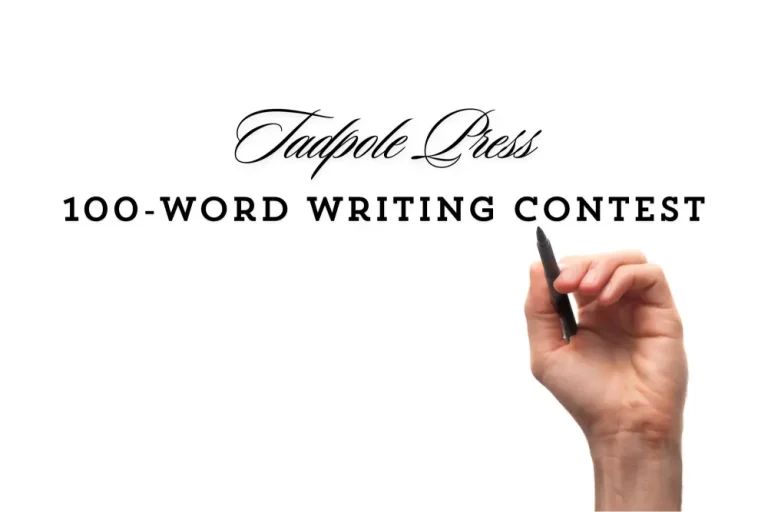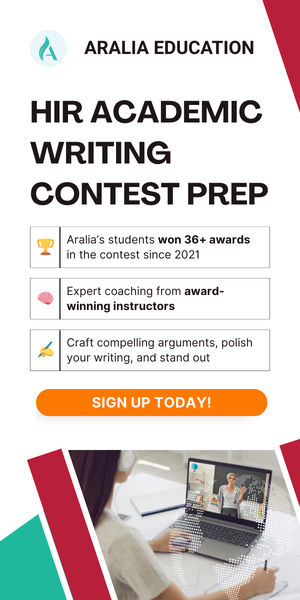1. Diamond Challenge
The Diamond Challenge is a year-long entrepreneurship competition for high school students to pitch their unique, innovative business ideas. Hosted by the University of Delaware Horn Entrepreneurship Center since 2012, the Diamond Challenge has over 16,000 alumni from 111 countries.
Participants choose from two tracks for their entrepreneurial idea: business innovation concept or social innovation concept. The business innovation concept is an idea that solves a customer problem; the main goal of the student’s business idea would be to generate revenue and profit. The social innovation concept is an idea that solves a societal or environmental problem; with this idea, the student’s business’s main goal is to make a positive impact on the world (so the business idea could be a non-profit).
There are three rounds, see below:
- Round 1: Submission Round
- Round 2: Pitch Round
- Round 3: Diamond Challenge Summit (by invite only)
Diamond Challenge Prizes
Compared with other business competitions for high school students, the Diamond Challenge has some of the most impressive, large cash prizes. Each year, students compete for a prize pool of $100,000. Each of the two tracks (business and social) will have their own winners for each of the below prizes.
- First place: $12,000
- Second place: $8,000
- Third place: $4,500
Delaware Solid Waste Authority Waste & Recycling Innovation Prize is awarded to the teams that develop an advancement in the waste or recycling industry that fosters sustainability within both the community and the environment.
Gore Innovation Excellence Prize is awarded to the teams who best represent the application of technology to improving lives.
Horn Equity Thru Entrepreneurship Prize is awarded to the team with the greatest potential to advance social justice and equality of opportunity.
Horn Entrepreneurship Global Prize is awarded to the top global teams that demonstrate extraordinary entrepreneurship excellence and embody the true spirit of the Diamond Challenge.
Cost: Free to enter
Diamond Challenge Important Dates and Deadlines
The submission portal opens in September every year. The Diamond Challenge offers many pre-submission support events to help students prepare their projects. See below for contest dates from the latest Diamond Challenge season:
- Submission Round due January 16, 2025
- Advancing Teams Notified: February 18, 2025
- Finalists Announced: March 16, 2025
- Limitless World Summit: May 1-2, 2025
Eligibility and Rules
To participate, students form teams of 2-4 students with 1 adult advisor. Feel free to team up with students from different schools! Participants must be 14-18 years old and enrolled in high school (or officially homeschooled). The Diamond Challenge is worldwide competition, so students from all over the world are welcome to submit their innovations. Business ideas can be new or already launched and earn money, but innovations must not have already generated more than $100,000 in revenue. If you submitted an idea for a previous season of the Diamond Challenge, you can resubmit your idea to the next season if you’ve made significant improvements.
Learn more about the Diamond Challenge.
2. Modeling the Future Challenge
What is the Modeling the Future Challenge?
The Modeling the Future Challenge is an actuarial science high school competition focusing on math-modeling, data analysis, risk management. Actuarial science is the study of assessing financial risks in the insurance and finance fields using mathematical and statistical methods. Hosted by The Actuarial Foundation, Modeling the Future Challenge saw over 1,000 student participants and 114 teams last year.
How does this competition work?
Students analyze risks and provide recommendations to companies, industry groups, governments, or organizations. In the preliminary round, students are asked to solve a given problem. From this round, semifinalists are selected to conduct their own research projects with real-world data. Ultimately, finalists are selected to present their projects. See below for a breakdown of the three phases of Modeling the Future Challenge:
- Phase 1: Scenario Phase
- Phase 2: Project Phase (only selected Semifinalists participate)
- Phase 3: Presentation Phase (only selected Finalists participate)
Modeling the Future Challenge Prizes
Finalists for Modeling the Future Challenge may win college scholarships paid directly to the U.S. college/university of their choice. These are not cash prizes; the scholarship money will go directly to the institution. Semifinalists receive digital recognition certificates, while Finalists receive printed recognition certificates. First and second place winners will be submitted to the Actuarial Research Clearing House (ARCH) for online publication.
- First place: $25,000
- Second place: $15,000
- Third place: $10,000
- Fourth place: $5,000
Location: Modeling the Future Challenge has a new host city every year. Expect to travel if you’re a selected Finalist.
Cost: Free to enter
Modeling the Future Challenge Important Dates and Deadlines
- Registration Opens: August 26, 2024
- Launch Webinar: September 9, 2024
- Scenario Phase Workshop: October 9, 2024
- Registration Closes: November 10, 2024
- Team Office Hours: November 20, 2024
- Scenario Phase Submissions Due: December 8, 2024
- Semifinalist Announcement: December 16, 2024
- Project Phase Workshop: December 18, 2024
- Project Intro Videos Due: February 2, 2025
- Project Visual Highlight Due: February 23, 2025
- Project Reports Due: March 2, 2025
- Regional Finalist Events: March 17-21, 2025
- Final Videos & Papers Due: April 6, 2025
- National Symposium: April 28 – May 2, 2025
Eligibility and Rules
Students can make individual projects or form a team of up to 5 students. All participants must be between the ages of 13 to 19 by August 1st of the year of registration (so, if registration opens in late August 2024, then all participants must be 13-19 years old by August 1, 2024). Students must be juniors or seniors in high school and located within the U.S. Sophomores are accepted by petition only. All participants must be currently taking or have already taken high-level math classes such as statistics, probability, pre-calculus, or calculus.
Learn more about the Modeling the Future Challenge.
3. Conrad Innovation Challenge
What is the Conrad Innovation Challenge?
Previously known as the Conrad Spirit of Innovation, the Conrad Innovation Challenge is an entrepreneurship competition where high school students create year-long projects to design a solution to an important global issue. Hosted by The Conrad Foundation and Space Center Houston, the 2023-2024 season saw over 4,000 participants from 50+ countries.
How does the competition work?
The Conrad Innovation Challenge has four stages:
- Stage 1: Activation Stage
- Stage 2: Lean Canvas Stage
- Stage 3: Innovation Stage
- Stage 4: Power Pitch Stage (Conrad Challenge Innovation Summit)
Conrad Innovation Challenge Prizes
Conrad Innovation Challenge doesn’t offer cash prizes, and scholarship awards are only for a specific list of colleges.
Highest prize: Pete Conrad Scholar
Winners receive medallion, certificate, Dell Latitude Laptop, patent lawyer services valued at $20,000 to patent the idea, a New Product Market Feasibility Study valued at $1,500, exclusive connections to grant funding sources, $2,500 to attend summer entrepreneurship program Leangap, as well as access to other state of the art entrepreneurship programs such as The Western Union Foundation Fellowship and TKS.
Second highest prize: Finalist
$25,000 per year to Menlo College
$22,000 per year to Lewis & Clark College
$15,000 per year to Clarkson University
$10,000 per year to College of Charleston
$2,500 per year to Florida Institute of Technology
$1,000 to attend summer entrepreneurship program Leangap
Third highest prize: Conrad Innovator
$20,000 per year to Menlo College
$15,000 per year to Lewis & Clark College
$12,000 per year to Clarkson University
$10,000 per year to College of Charleston
$2,500 per year to Florida Institute of Technology
Location: The first three stages are preformed virtually, and the fourth and final stage including the Conrad Innovation Challenge Summit is held in Houston, Texas at the Space Center Houston and NASA’s Johnson Space Center.
Cost: For stages 1 and 2, there is no entry fee. Starting at stage 3, Innovation Stage, entry fee is $499.
Conrad Innovation Challenge Important Dates and Deadlines
- Stage 1 Activation Stage due: November 1, 2024
- Stage 2 Lean Canvas Stage due: November 1, 2024
- Stage 3 Innovation Stage due: January 10, 2025
- Stage 4 Power Pitch Stage (Summit) due: April 22 to April 25, 2025
Eligibility and Rules
Students compete in teams of 2 to 5 participants with a coach over the age of 18. This competition is open to students worldwide, and the challenge encourages participants to team up with students from other schools and even other countries. All participants must be 13-18 years old and in high school (or officially homeschooled). Students can repeatedly join in different years and resubmit ideas if they’ve made significant improvement.
Learn more about the Conrad Innovation Challenge.
4. GENIUS Olympiad
The GENIUS Olympiad is a global high school competition of innovative projects that focus on solving environmental issues. GENIUS stands for Global Environmental Issues and Us. Initiated in 2011 and currently hosted by the Rochester Institute of Technology, the GENIUS Olympiad aims to produce future scientists, artists, writers, engineers, and policymakers who will lead their communities to greater environmental sustainability. For the 2024 season, the GENIUS Olympiad received 2452 projects. With an acceptance rate under 30%, GENIUS Olympiad will be presenting 727 projects from around 1,000 students from 65 countries.
How does the competition work?
Students choose an environmental issue they’re passionate about and present a project combating it and providing a solution to call for change. Student projects fall under five general disciplines: science, creative writing, business, robotics and coding, and art (including music and short film). Finalists will be selected to attend Rochester Institute of Technology and present their projects at GENIUS Finals.
GENIUS Olympiad Prizes
GENIUS Olympiad prizes consist of medals and scholarships to the Rochester Institute of Technology.
The winning project will receive the Top Grand Gold Award, which includes all the merits of the Gold Award and an exclusive Grand Certificate and additional surprise award.
Gold Medal will be awarded to top 10% of projects.
Silver Medal awarded to top 30% of projects.
Bronze Medal awarded to top 50% of projects.
Honorable Mention awarded to top 80% of projects.
GENIUS Finals attendees will receive conditional acceptance letters to RIT.
RIT will also be offering renewable scholarships:
Gold Medalists: $20,000
Silver Medalists: $18,000
Bronze Medalists: $15,000
Honorable Mentions: $14,000
GENIUS Finals Participants: $12,000
Finalists (who didn’t attend GENIUS Finals): $10,000
Location
All GENIUS Finals events will be held on-campus at Rochester Institute of Technology (RIT) in Rochester, New York, USA. There is a trip to Niagara Falls included in the GENIUS Finals participation fee.
Online projects are not accepted. Finalists must present their projects in-person in Houston for GENIUS Finals.
Cost
All participants will pay a $50 application fee per project. If your project is accepted, you become a Finalist and will be invited to pitch your project idea at the GENIUS Finals. The participation to attend GENIUS Finals is $425 per participant. This includes a trip to Niagara Falls at no additional cost.
There are optional trips to Washington D.C., New York City, Boston, and/or Six Flags where students can socialize with other qualifying Finalists. The fees for these optional trips range from $695 to $1150.
GENIUS Olympiad Important Dates and Deadlines
- Application Deadline: March 10
- Participant Registration Deadline: May 1
- Request Visa Letters: April 3 – May 1
- Trip and Travel Registration: April 3- May 10
- GENIUS Finals: June 9-13
5. Blue Ocean Entrepreneurship Competition
What is the Blue Ocean Entrepreneurship Competition?
The Blue Ocean Entrepreneurship Competition is the biggest virtual pitch competition for high schoolers worldwide. In 2024, the competition saw 9,800 participants from over 4,800 schools in 161 countries.
The Blue Ocean Entrepreneurship Competition aims to introduce students to world-renowned business strategy, Blue Ocean Strategy. All participants must complete the online Blue Ocean Mini-course. Blue Ocean Strategy focuses on creating innovative niches in the existing market space. Over 2,800 colleges and universities teach Blue Ocean Strategy in business courses. Read some examples of current businesses that use the Blue Ocean Strategy.
How does the competition work?
Students make a 5-minute video presenting a pitch deck for their business idea and post their video on YouTube. One of the awards depends on how many likes the student’s video receives on YouTube.
In the Blue Ocean Entrepreneurship Competition, participants must thoroughly complete their market research and develop a deep insight into consumer trends to create a novel business idea that makes a business unlike anything out there. While the name may be misleading, this competition/strategy is not about innovative ideas to combat climate change.
Student projects are judged based on value innovation, market potential, commercial viability & scalability, technical feasibility, and quality of presentation & use of Blue Ocean tools.
What makes Blue Ocean different from other entrepreneurship competitions?
Students learn and focus on using Blue Ocean Strategy and other business tools like Eliminate-Reduce-Raise-Create Grid, Three Tiers of Noncustomers Framework, Buyer Utility Map, profitability model, go-to-market plan, end-user feedback, Strategy Canvas, and more!
Blue Ocean Entrepreneurship Competition Prizes
First place: $1000
Second place: $750
Third place: $500
People’s choice: $750 (top pitch with the most likes on YouTube)
Six Regional Winners: $500 each
Regions categorized as North America, Europe, Africa, Asia and Oceania, Latin America, and Middle East.
Location: Virtual
Cost: Free to enter
Blue Ocean Entrepreneurship Competition Important Dates and Deadlines
2025 Registration is already open!
Submission Deadline: February 16, 2025
Top 100 Announcement: March 30, 2025
Top 30 Announcement: April 16, 2025
Top 10 Announcement: May 8, 2025
Eligibility and Rules
Students can compete individually or form a team of up to 5. Students can team up with students from different schools. All participants must be 14-18 years old, and in high school or homeschool equivalent. Applications are accepted from students worldwide. Pitches must be in English.
Learn more about the Blue Ocean Entrepreneurship Competition.
6. Wharton Global High School Investment Competition
What is the Wharton Global High School Investment Competition?
The Wharton Global High School Investment Competition is a free experiential trading simulation challenge. Students learn about strategy-building, teamwork, communication, risk, diversification, company and industry analysis, and many other aspects of investing. In the 2023-2024 season, Wharton Global High School Investment Competition had 9,010 students in 1,655 teams from 62 countries.
How does the competition work?
The Wharton Investment Competition is a 10-week program. Students complete their trading simulations in the fall semester and results and (semi)finals are released and held throughout the winter/spring. Student teams examine a case study of a Wharton graduate’s business (the client) and work to help this client meet their investment goals with their business. Students have access to online stock market simulator, allowing them to gain real-life experience in the trading business.
Top 50 teams are promoted to a virtual Semifinals where teams present their investment strategy to an esteemed judge panel from the Wharton community. The top 10 teams will be selected to go to the in-person Global Finale at The Wharton School of the University of Pennsylvania in Philadelphia.
Wharton Investment Competition Prizes
Wharton does not offer cash prizes or scholarships, but it offers something equally as valuable. Winners gain impressive recognition from the famous, prestigious, arguably most respectable business school in the world: The Wharton School. This will look incredible on your college applications.
Competition awards include certificates and free admission to Wharton online summer programs and classes.
Location: Students will work on their investment simulations from their own homes/schools. Semifinals will be held virtually, and the Global Finale will be held in-person at The Wharton School of the University of Pennsylvania in Philadelphia, USA.
Cost: Free to enter
Wharton Investment Competition Important Dates and Deadlines
Registration opens: June 17, 2024
Registration closes: September 13, 2024
First day of trading simulation: September 30, 2024
Last day of trading simulation: December 13, 2024
Semifinalists (Top 50 teams) Announcement: January 2025
Virtual Semifinals: March 2025
Finalists (Top 10 teams) attend Global Finale: April 2025
Eligibility and Rules
Students form teams of 4-7 students, and all team members must be from the same high school (homeschool students must apply for special exemption). Each team must have an advisor who is a current teacher at the team’s high school. Each participant can only be on one team.
All participants must be 14-18 years old and a current high school student.
Learn more about the Wharton Global High School Investment Competition.
7. Global Youth Entrepreneurship Challenge
What is the Global Youth Entrepreneurship Challenge?
The Global Youth Entrepreneurship Challenge (GYEC) is an online 12-hour business idea competition for high school students worldwide. The competition’s goal is to promote an entrepreneurial spirit in high school students and teach students about the business world. GYEC is hosted by the Center for Entrepreneurship Development and the Center for Innovative Learning. In 2023, 600+ students in 83 teams participated.
How does the competition work?
The challenge prompt is given on the day of the competition. Prompts are about significant global problems that we all share as global citizens. Examples include poverty, hunger, education, energy, and climate change. Within 12 hours, students must innovate a business idea to address these global social issues sustainably using science and technology. Students must create and submit a 2-page business plan and a 3-minute video pitching their business idea.
Global Youth Entrepreneurship Challenge Prizes
The prizes for GYEC are not impressive, but the challenge is unique compared to all other business competitions because of the tight time limit. Excelling in such a short time frame arguably proves more skill and excellency than longer term projects.
The winner and runner-up receive trophies and certificates.
Location: Virtual
Cost: 10,000 Japanese Yen (approximately $64)
Global Youth Entrepreneurship Challenge Important Dates and Deadlines
There’s a Preliminary Round and a Final Round.
Applications closed: March 21, 2025 (Japan Time)
Preliminary Round: April 13, 2024
Preliminary Round Results Announced: April 25, 2024
Final Round: May 25, 2024
Final Round Winner and Runner Up Announced: June 12, 2024
Eligibility and Rules
Each team can have up to 8 students. All participants must be of high school age, 14-19 years old. GYEC accepts students from around the world, but after the preliminary round only up to 3 teams per country can enter. The preliminary round is to narrow down the teams to 3 per country.
Learn more about the Global Youth Entrepreneurship Challenge.
8. Pirates Pitch Competition for High School Students
What is the Pirates Pitch Competition?
Pirates Pitch Competition is a business idea competition with live pitch presentation event for high school sophomores, juniors, and seniors. The event is hosted by Seton Hall University, where the final pitch presentation will be held and scholarships are awarded as competition prizes.
How does the competition work?
Students submit an original business idea for an innovative service or product (or a business you’ve already started). This is a written business description of a maximum of 350 words. Answer the following questions in your business description: What problem does your product or service solve? How do you propose making money? Who are your customers, and why will they buy your product or service? Who is your competition, and how are you going to be better than the competition?
10 Finalists will be invited to pitch their business live at Seton Hall University in November. Finalists will be judged by a panel of successful alumni entrepreneurs, corporate leaders, and business faculty.
Pirates Pitch Competition Prizes
First place: $2,500 in cash and $10,000 scholarship to Seton Hall University
Second place: $1,000 in cash and $6,000 scholarship to Seton Hall University
Audience Choice Award: $300 in cash
All Ten Finalists: $4,000 scholarship to Seton Hall University
Location: Finalists will present their business pitches live at Seton Hall University in New Jersey, USA.
Cost: Free to enter
Pirates Pitch Competition Important Dates and Deadlines
Applications open August 26, 2024.
Finalists announced and Finals Pitch: November 2024
Eligibility and Rules
Participants must compete individually and be high school students grades 10-12 with a minimum 3.0 GPA.
Learn more about the Pirates Pitch Competition.
Interested in these business competitions for high school students? Read more about entrepreneurship competitions.
Interested in these business competitions for high school students? Read more about entrepreneurship competitions.
Aralia Business Classes
Aralia Education specializes in offering comprehensive business classes and competition preparation for students, including prestigious events like the Diamond Challenge. Our courses are meticulously designed to prepare young entrepreneurs and business enthusiasts with the knowledge and skills needed to succeed in competitive environments. We pride ourselves on our experienced instructors, who bring a wealth of expertise from top-tier educational backgrounds and real-world business experience. At Aralia, we prioritize both academic excellence and personal growth, ensuring each student receives the tailored support they need to thrive.













